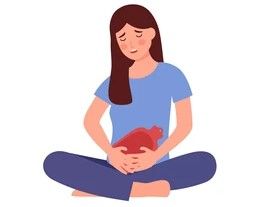What Causes It?
Hormonal Imbalance
Polycystic Ovary Syndrome (PCOS)
Thyroid Problems
Uterine Fibroids or Polyps
Endometriosis
Pelvic Inflammatory Disease (PID)
Extreme Weight Loss or Gain
Excessive exercise
Stress and anxiety
Certain medications (like birth control or chemotherapy)
Signs & Symptoms
Irregular Periods
Heavy Menstrual Bleeding (Menorrhagia)
Very Light Bleeding (Hypomenorrhea)
Painful Periods (Dysmenorrhea)
No Periods At All (Amenorrhea)
Premenstrual Syndrome (PMS)
Severe Cramps or Pelvic Pain
Spotting Between Periods
Nausea, Fatigue, or Breast Tenderness
